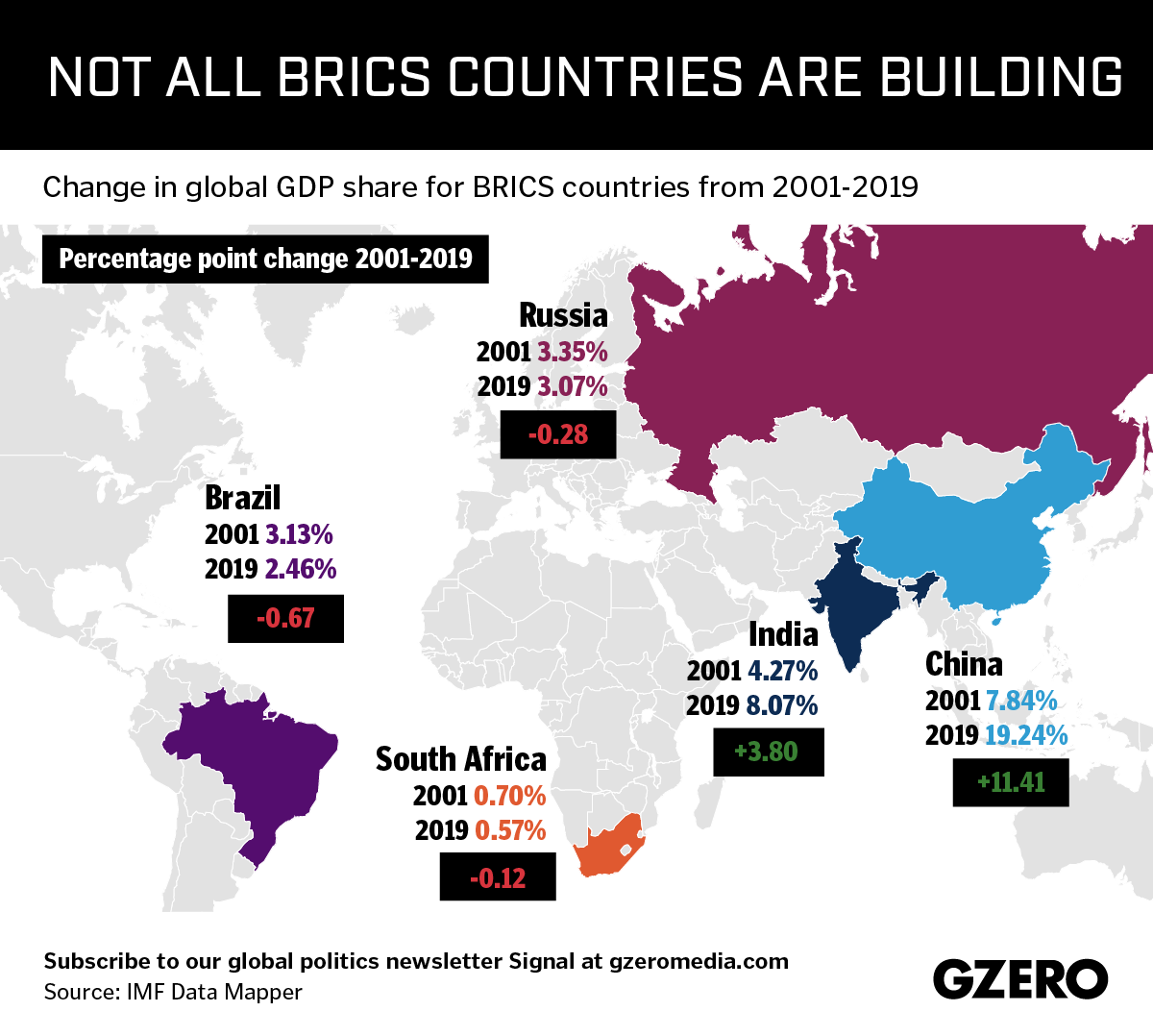October 11, 2019
The BRICS – a bloc of nations comprising Brazil, Russia, India, China and South Africa – meets next month in Brazil's capital for its annual summit. The idea of the "BRIC" grouping comes from a 2001 Goldman Sachs paper, which predicted that these rising economies, despite their major differences, would soon be among the world's largest, and that as a group they would command more global clout as a result. The idea took on a real-world structure in 2009, when Brazil, Russia, India and China began holding regular BRIC summits, and in 2010 they invited South Africa to join as well. But this vision of BRICS power hasn't necessarily materialized: China's share of global GDP has boomed – and India's growth has been significant, too. But the B, R, and S shares of the global economy have actually shrunk over the past 20 years. Here's a look at how these economies have fared since the idea of the BRICS was born.
More For You
- YouTube
For many in Iran, it’s a waiting game for how long Ayatollah Khamenei has left to live.
Most Popular
An army soldier stands guard at a post at the Friendship Gate, following exchanges of fire between Pakistan and Afghanistan forces, at the border crossing between the two countries in Chaman, Pakistan February 27, 2026. Picture taken with a mobile phone.
REUTERS/Abdul Khaliq Achakzai
In a 30-minute call on Thursday, President Donald Trump reportedly told Ukrainian President Volodymyr Zelensky he wants to end the war with Russia as soon as possible — aiming for a deal by summer, but ideally within weeks.
Former British ambassador to the U.S. Peter Mandelson leaves his residence after he was released following his arrest by London police on Monday on suspicion of misconduct in public office, following the release of U.S. Justice Department files linked to the late financier and convicted sex offender Jeffrey Epstein, in London, Britain, February 26, 2026.
REUTERS/Toby Melville
The ghost of Jeffrey Epstein continues to haunt the world.
Think you know what's going on around the world? Here's your chance to prove it.
© 2025 GZERO Media. All Rights Reserved | A Eurasia Group media company.
